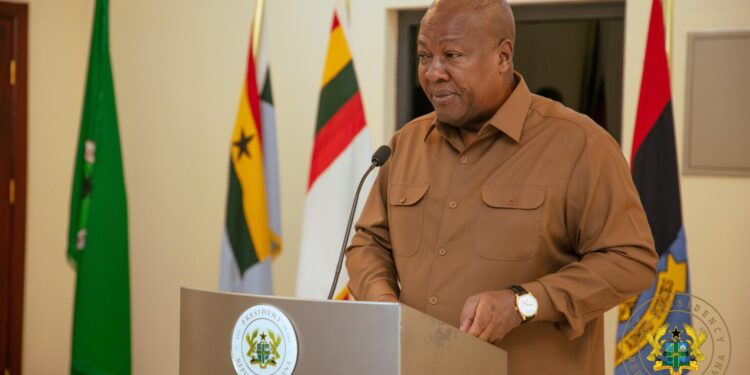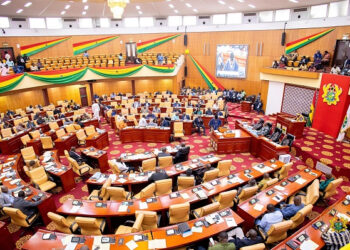President John Dramani Mahama has announced a strategic initiative to reopen Ghana’s domestic bond market and re-engage with the international capital market as part of efforts to revitalize the economy.
However, he emphasized that future borrowing would be strictly tied to self-financing and commercially viable projects to ensure value for money and sustainable debt management.
The President made this announcement during the ninth edition of the CEO Summit held in Accra, where he outlined key components of his administration’s fiscal and economic recovery strategy.
“In domestic and international capital markets, we’re working to reopen Ghana’s bond markets in collaboration with the IMF and our development partners, the Ghana Stock Exchange, and local banks,” President Mahama stated.
“However, future borrowing will not be business as usual. It will be linked to commercially viable projects by MDAs, MMDAs, and SOEs. These projects must be self-financing and able to ensure value for money and sustainable repayments.”
President Mahama also revealed plans to amend the Public Financial Management Act and the Constitution to make contributions to the Sinking and Stabilization Funds mandatory.
“It will no longer be optional,” he said. “A certain percentage of funds must be committed to the Sinking and Stabilization Funds. This will provide a financial cushion and improve our resilience against future economic shocks.”
In a move aimed at deepening decentralization and infrastructure development, the President announced that Metropolitan, Municipal, and District Assemblies (MMDAs) will be empowered to issue infrastructure and municipal bonds.
“These bonds, secured against a portion of the District Assemblies Common Fund, will be used to finance key development projects including roads, water systems, schools, and local industries,” he said.
President Mahama’s announcement comes on the heels of a positive turnaround in Ghana’s Treasury bill market.
The government recorded a 17.8% oversubscription in its most recent auction, after three consecutive weeks of undersubscription, signaling renewed investor confidence amid a sharp decline in interest rates.
The Treasury received GHS 6.53 billion in bids against a target of GHS 5.54 billion, ultimately accepting GHS 5.97 billion.
The 91-day bill led with GHS 4.95 billion in bids, of which GHS 4.58 billion was accepted. All bids for the 182-day bill totaling GHS 890.81 million were taken, while GHS 499.76 million was accepted out of the GHS 689 million tendered for the 364-day bill.
Interest rates dropped across the board, with the 91-day bill falling to 14.92%, the 182-day bill to 15.55%, and the 364-day bill to 16.00%.
President Mahama’s roadmap signals a disciplined shift in public finance management, aimed at restoring market confidence and ensuring that public borrowing is tied to measurable outcomes.
Read Also: Mankessim Queen Mother Pledges Dedication to Ghana Gold Board Mandate



























